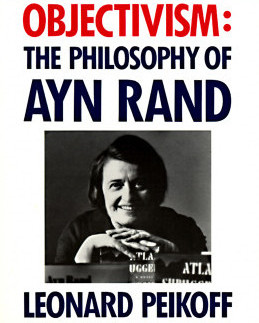An excerpt from chapter 4 on Objectivity from Objectivism: The Philosophy of Ayn Rand by Leonard Peikoff.
Let me introduce this topic by recalling my brief discussion of higher-level abstractions. I gave the example of a child moving from “cat,” “dog,” and “horse” to “animal,” and then from “animal,” “plant,” and; “man” to the even higher- level concept “organism.” A first-level concept is one formed directly from perceptual data, without the need of prior conceptualization; Higher-level concepts, by contrast, represent a relatively advanced cognition. They cannot be formed directly from perceptual data, but presuppose earlier concepts.
The distinction between first- and higher-level concepts is most obvious when we reach the stage of integrating existential concepts with concepts of consciousness. Consider, for instance, a concept such as “culture” …
Read the rest in Objectivism: The Philosophy of Ayn Rand.
